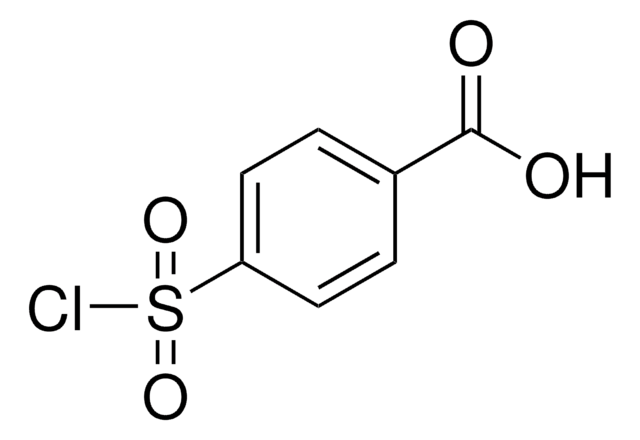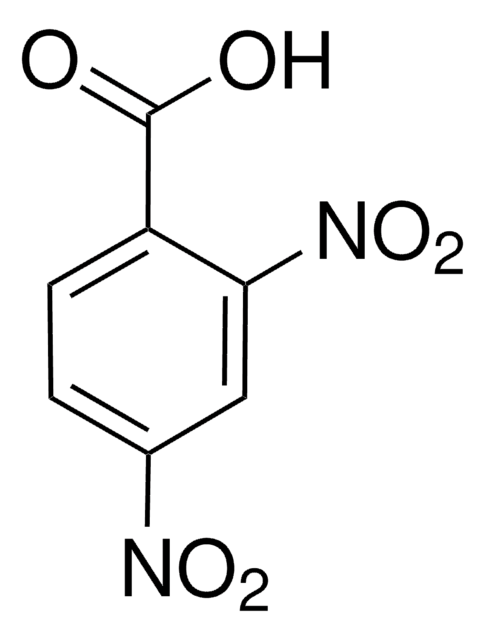About This Item
Recommended Products
Assay
95%
mp
128-130 °C (lit.)
SMILES string
OC(=O)c1cccc(c1)S(Cl)(=O)=O
InChI
1S/C7H5ClO4S/c8-13(11,12)6-3-1-2-5(4-6)7(9)10/h1-4H,(H,9,10)
InChI key
LMRKXSDOAFUINK-UHFFFAOYSA-N
General description
Signal Word
Danger
Hazard Statements
Precautionary Statements
Hazard Classifications
Eye Dam. 1 - Skin Corr. 1B
Storage Class Code
8A - Combustible corrosive hazardous materials
WGK
WGK 3
Personal Protective Equipment
Regulatory Listings
Regulatory Listings are mainly provided for chemical products. Only limited information can be provided here for non-chemical products. No entry means none of the components are listed. It is the user’s obligation to ensure the safe and legal use of the product.
JAN Code
441759-VAR:
441759-25G:
441759-BULK:
441759-5G:
Certificates of Analysis (COA)
Search for Certificates of Analysis (COA) by entering the products Lot/Batch Number. Lot and Batch Numbers can be found on a product’s label following the words ‘Lot’ or ‘Batch’.
Already Own This Product?
Find documentation for the products that you have recently purchased in the Document Library.
Our team of scientists has experience in all areas of research including Life Science, Material Science, Chemical Synthesis, Chromatography, Analytical and many others.
Contact Technical Service









